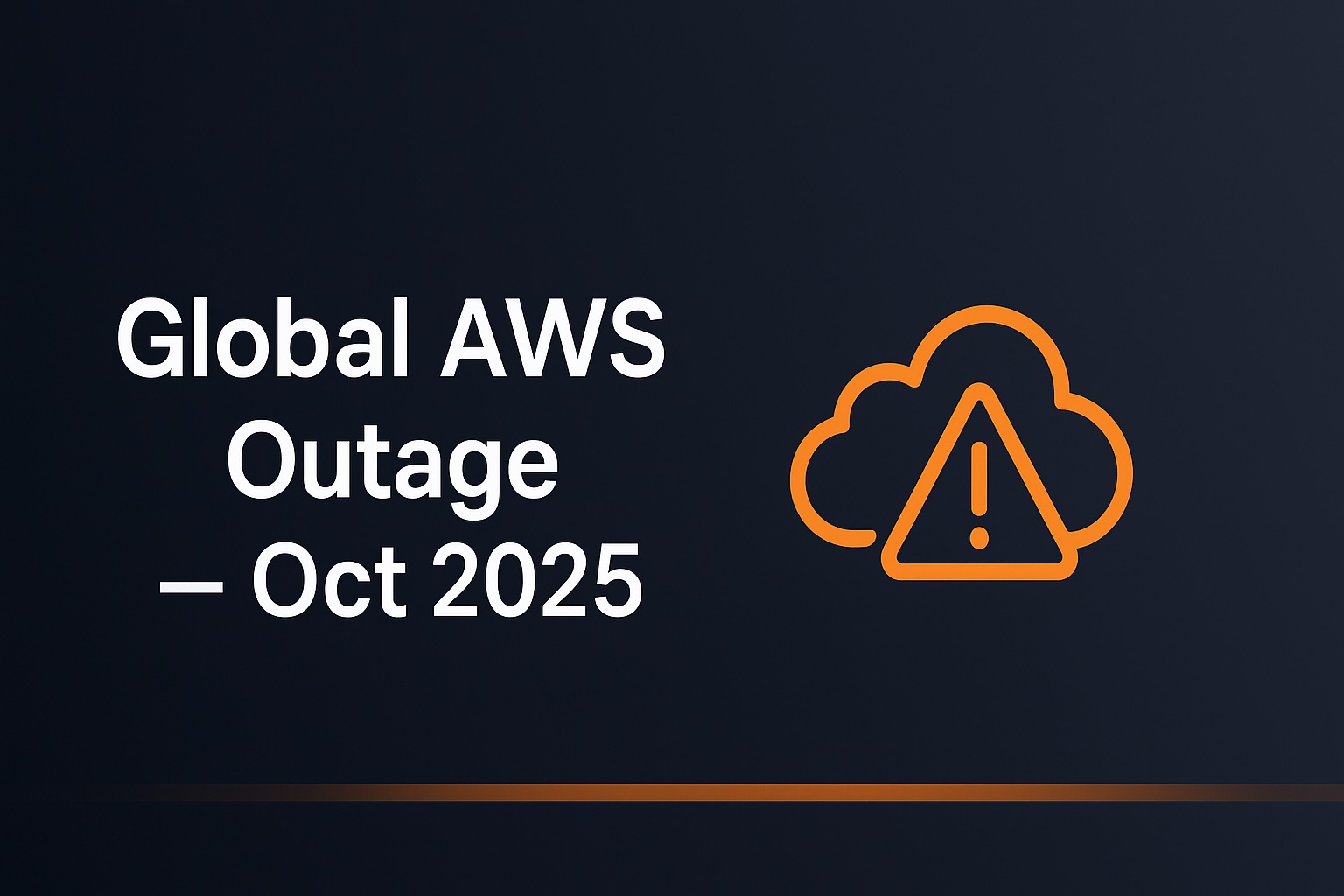In the early hours of October 20 2025, AWS confirmed a significant service disruption in its US-East-1 region (Northern Virginia) that has rippled across the globe. What began as “increased error rates and latencies for multiple AWS services” has resulted in widespread impact.
What happened?
- AWS’s status page reports that the US-East-1 region is experiencing elevated error rates and slower-than-usual performance across multiple services.
- Although the initial alert was for that region, reports show that services around the world dependent on AWS’ infrastructure are also disrupted.
- The affected platforms span gaming, AI, container registries, productivity apps, consumer services, and even banking.
- Financial and banking services also noted impact: in the UK, platforms belonging to major groups reported login or access issues.
Expanded list of impacted services
Here’s a more detailed breakdown by category of services confirmed or widely reported to be impacted:
Gaming / Consumer Platforms
- Fortnite — login and access problems reported.
- Snapchat — users reported the app being down or experiencing major errors.
- Roblox — listed in reports of services that depend on US-East‐1 and are affected.
- Duolingo — mentioned in listings of broadly impacted apps.
- Alexa (Amazon’s voice assistant) — users reported unresponsiveness, routines (alarms etc) not working.
AI / Search / Productivity Platforms
- Perplexity — The company publicly acknowledged their service was down due to “an AWS issue.”
- Airtable — Mentioned among platforms impacted due to the cloud disruption.
- Canva — Also cited in the same article of impacted services.
DevOps / Infrastructure / Container Registry
- Docker Hub / related container services — developer forums suggest that container registry access (and related CI/CD pipelines) have had incidents tied to the outage (though I did not locate a high-profile public statement).
- (Note: While some of these are more anecdotal, they illustrate the breadth of impact beyond “just apps”.)
Banking / Financial / Enterprise Services
- Banking platforms in the UK — e.g., login or access disruptions for some customers of major banking groups (e.g., Lloyds Banking Group, Bank of Scotland) — were linked to the AWS outage.
- Consumer-services apps like the McDonald’s app were also impacted.
Why this matters
- Cloud dependency at scale
- Many businesses adopt AWS on the assumption of high availability and global reach; this event highlights that even large cloud providers can experience systemic issues.
- Cascading effects
- Because so many services rely on AWS (directly or indirectly), an issue in one region can ripple globally, showing how interconnected the digital ecosystem is.
- Broader business impact
- It’s not only “game login fails”: productivity tools, developer pipelines, enterprise apps, banking access — all can be impacted.
- Resilience spotlight
- For technology managers and developers: this is a reminder of the importance of multi-region design, backup strategies, resilient architectures, and having visibility into third-party dependencies.
What to do if you’re impacted
- Check your service / application’s status page: many services post updates tied to this AWS incident.
- Check the AWS Health Dashboard (public view) or your account’s dashboard if you’re an AWS customer.
- If you’re a dependent service running on AWS:
- Determine whether your region (especially US-East-1) is affected.
- If you have a multi-region/fail-over setup: consider redirecting traffic or enabling standby region.
- Communicate with your users/customers: if your service is down or degraded due to AWS, transparency helps reduce frustration.
- Post-incident: update your architecture documentation: how many critical services depend on a single region/provider? What’s your fail-over plan? What’s the single-point failure?
- For developers: check pipelines, registries, container services — even if your front-end seems fine, parts of your stack (CI/CD, automated jobs) may be impacted.
Where things stand (as of writing)
- AWS has acknowledged the disruption and is “actively engaged” in mitigation and root-cause analysis.
- No confirmed timeline for full restoration has been publicly shared.
- The full scope of services and regions affected is still evolving and many services don’t yet know whether the impact stems directly from AWS infrastructure or from dependent layers/services.

